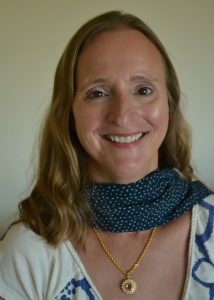Knowledge of Integrative Medicine
 Theresa Oswald, MD, an integrative medicine physician and Diplomate of the American Board of Physician Specialties® (ABPS), has spent many years studying ways to optimize the health and wellness of her patients in mind, body, and spirit. She has also been a lifelong student of yogic sciences as well as meditative and contemplative traditions. Like these ancient traditions, she says, integrative medicine has actually been around for centuries, except that it was known by other names.
Theresa Oswald, MD, an integrative medicine physician and Diplomate of the American Board of Physician Specialties® (ABPS), has spent many years studying ways to optimize the health and wellness of her patients in mind, body, and spirit. She has also been a lifelong student of yogic sciences as well as meditative and contemplative traditions. Like these ancient traditions, she says, integrative medicine has actually been around for centuries, except that it was known by other names.
In the 1970s and 80s integrative medicine was called holistic medicine, Dr. Oswald explains, because it treats the whole person, not just disease processes. But because the name didn’t suggest anything about the treatment protocols, it turned out to be less than ideal. In the 80s and 90s, integrative medicine was called complementary or alternative medicine. But this implied that the practice was in opposition to regular or conventional medicine, when in actuality it has a broader scope that includes conventional medicine, and using “alternative” or “complementary” in the name also fell out favor.
The name “integrative medicine” was developed to more accurately describe the practice, which integrates conventional medicine with ancient healing traditions and other natural ways of healing. But Dr. Oswald just prefers to call it good medicine. “Because it’s not in opposition to conventional medicine,” she says, “integrative medicine uses all the treatment options appropriate for any disease process, from surgery to other invasive procedures to simple things like breathing or touching as healing modalities.”
Dr. Oswald notes that integrative medicine prefers options that are less invasive. So, when a doctor is deciding between two treatment options – for example, prescription meds that may have side effects versus a diet with the potential for supplements – if there is evidence to show that both options are helpful, then the doctor would use the less invasive, and often less costly, option.
Far from being in opposition to conventional medicine, integrative medicine is inclusive of all evidence-based healing strategies, and integrative medicine practitioners can consider myriad treatment options. Traditions like Ayurveda, traditional Chinese medicine, Reiki, music therapy, art therapy, herbal medicine, journal therapy, and breathing and relaxation therapy, all have their place in integrative medicine. No therapy would be right for every patient, of course, because people are different. So a set of healing suggestions for one person may be unsuitable for someone else with similar symptoms but a different social context, temperament, or constitution.
Essentially, “integrative medicine meets people where they are” to offer options for their health struggles, Dr. Oswald says. Integrative medicine providers come into play when conventional medicine has no proven treatment for a patient’s condition, or a patient has tried every treatment option in conventional practice and still exhibits symptoms.
The ABPS agrees with Dr. Oswald’s assertion that having more wellness tools in our toolbox is always helpful, and supports her goals of promoting healthy living and wellness through an integrative approach to health care. The ABPS is the only multi-specialty board in the United States that offers physician certification in integrative medicine. For more information about this emerging specialty, contact the ABPS.






